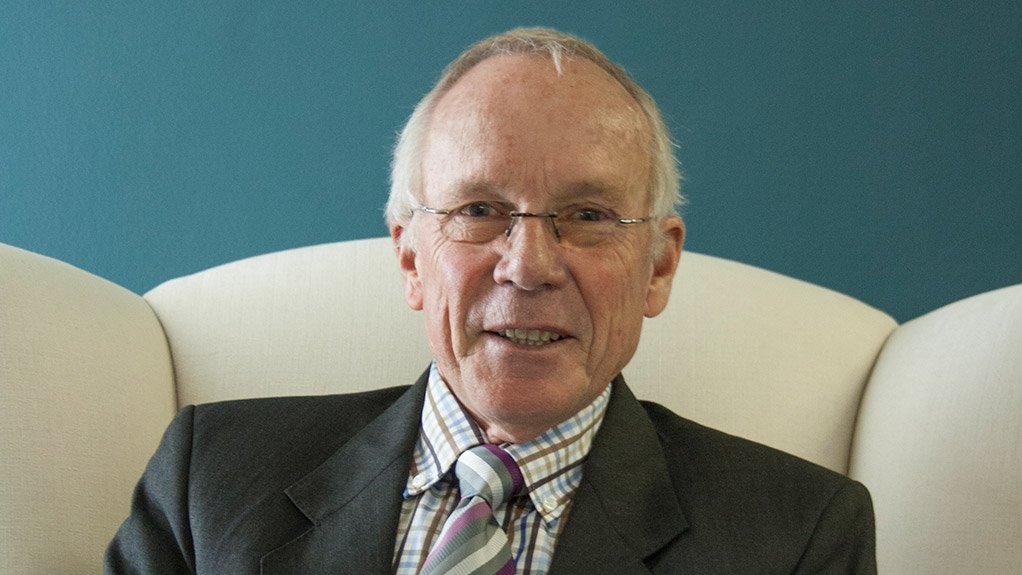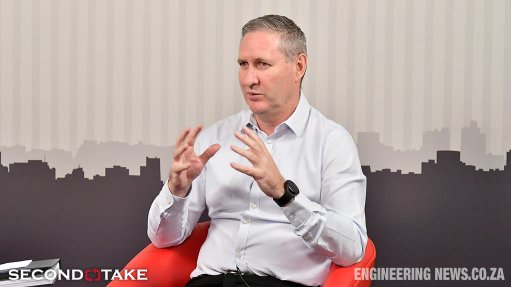Outgoing Seifsa president calls for overhaul of ‘self destructive’ wage bargaining
Outgoing Steel and Engineering Industries Federation of South Africa (Seifsa) president Henk Duys has called for an overhaul in the way wage bargaining is conducted in the sector, describing the current system as “self destructive”, “one sided” and not sufficiently flexible to cater for the competitive realities confronting smaller enterprises in particular.
Offering what he described as personal observations as part of a presidential address delivered in Johannesburg on Friday, Duys argued that changed circumstances demanded new solutions and that it could no longer be “business as usual”.
“We will kill our businesses, and there will be less employment, if we continue on the old path,” he warned, while emphasising that his opinions were not mandated Seifsa positions.
The remarks came against the backdrop of an intensification of labour-market instability over the past two years, with protracted, and sometimes violent, strikes having resulted in major output reductions in sectors as diverse as mining, agriculture and automobile production.
The Department of Labour’s Industrial Action Report 2012 indicated that there were a total of 99 strikes in 2012, up from 67 in 2011, 74 in 2010 and 51 in 2009. Some 3.3-million working days were lost along with R6.6-billion in wages.
Labour instability in the automotive sector was also cited by BMW South Africa as having disqualified it from competing for a potential second model, which could have been made alongside the BMW 3 Series sedan at its Rosslyn factory, near Pretoria.
The issue has also taken centre stage in several recent statements on prospects for the South African economy, with the International Monetary Fund partly attributing its latest downgrade to the country’s growth outlook – from 2.8% in April, to 2% in October – to persistent labour tensions.
In addition, South African Reserve Bank governor Gill Marcus said earlier this month that, despite a reduction in nonprocedural and violent industrial action in 2013, the effects of strike action on the economy remained concerning and she, thus, argued for reforms to improve the functioning of the labour market.
Labour Minister Mildred Oliphant, meanwhile, recently asserted that South Africa should “go back to the drawing board and revisit the collective-bargaining framework and begin to ask tough questions”.
Seifsa, which turned 70 this year and is a federation of 27 employer associations, concluded a three-year settlement with the six recognised unions operating in the metals and engineering sector in 2011. The agreement, which was itself concluded only after an intensive two-week strike, expires on June 30, 2014.
Seifsa officially supported centralised bargaining and the practice of extending collective agreements to nonparticipants. But the National Employers Association of South Africa (Neasa), which has members that operate in the sectors covered by the 2011 agreement, refused to sign the settlement and urged other nonparties not to implement the agreement.
Neasa called for a lower entry grade for new employees, describing the settlements as unaffordable for many employers. It also demanded a higher representation at the Metal and Engineering Industries Bargaining Council, an issue that remains the subject of arbitration proceedings between it and Seifsa.
Duys warned that Seifsa could split if large businesses dictated to smaller businesses, highlighting calls for greater flexibility and freedom of action at the company level.
“Without far greater flexibility . . . I fear that we will have great difficulty in keeping our associations in the fold next year and that some of them may well stand out and not be party to the final agreement.”
He said that companies had lost ground in their competitiveness over the past number of years as a result of higher-than-inflation wage increases and indicated that “one-sided bargaining”, in the absence of productivity commitments, was no longer tolerable.
“Employers are seeking real benefits – they can only justify increased wage costs if that is offset through productivity gains,” Duys added, while cautioning that the 2014 bargaining processes was likely to be difficult.
“We simply don’t have the money to satisfy the much needed and justified demands of our workers, the solution lies in a joint commitment to sacrifice short-term gains in favour of jointly tackling increased productivity, enhanced global competitiveness and the expansion of our economy . . . [and] not in continuously attacking the soft and sympathetic underbelly of the employers.”
Comments
Announcements
What's On
Subscribe to improve your user experience...
Option 1 (equivalent of R125 a month):
Receive a weekly copy of Creamer Media's Engineering News & Mining Weekly magazine
(print copy for those in South Africa and e-magazine for those outside of South Africa)
Receive daily email newsletters
Access to full search results
Access archive of magazine back copies
Access to Projects in Progress
Access to ONE Research Report of your choice in PDF format
Option 2 (equivalent of R375 a month):
All benefits from Option 1
PLUS
Access to Creamer Media's Research Channel Africa for ALL Research Reports, in PDF format, on various industrial and mining sectors
including Electricity; Water; Energy Transition; Hydrogen; Roads, Rail and Ports; Coal; Gold; Platinum; Battery Metals; etc.
Already a subscriber?
Forgotten your password?
Receive weekly copy of Creamer Media's Engineering News & Mining Weekly magazine (print copy for those in South Africa and e-magazine for those outside of South Africa)
➕
Recieve daily email newsletters
➕
Access to full search results
➕
Access archive of magazine back copies
➕
Access to Projects in Progress
➕
Access to ONE Research Report of your choice in PDF format
RESEARCH CHANNEL AFRICA
R4500 (equivalent of R375 a month)
SUBSCRIBEAll benefits from Option 1
➕
Access to Creamer Media's Research Channel Africa for ALL Research Reports on various industrial and mining sectors, in PDF format, including on:
Electricity
➕
Water
➕
Energy Transition
➕
Hydrogen
➕
Roads, Rail and Ports
➕
Coal
➕
Gold
➕
Platinum
➕
Battery Metals
➕
etc.
Receive all benefits from Option 1 or Option 2 delivered to numerous people at your company
➕
Multiple User names and Passwords for simultaneous log-ins
➕
Intranet integration access to all in your organisation



















